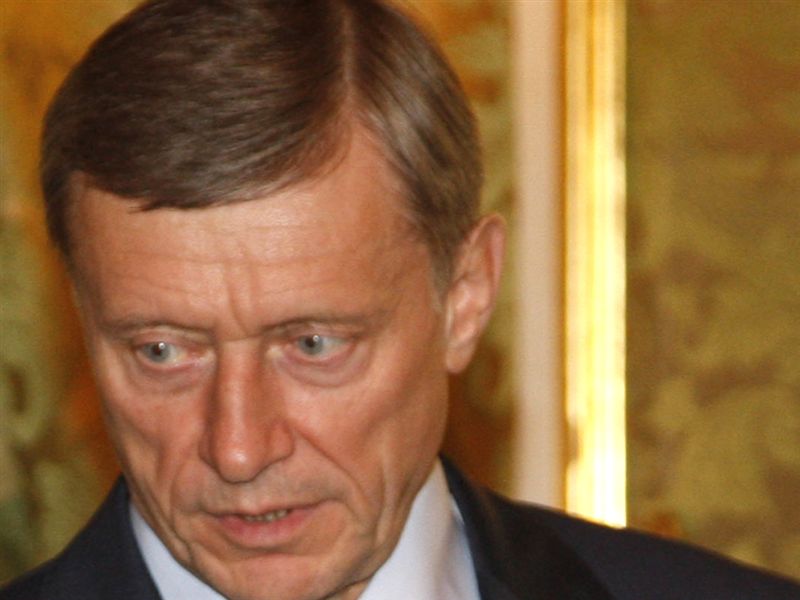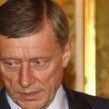
Moscow Boosts CSTO Military Dimension: on Paper
Publication: Eurasia Daily Monitor Volume: 7 Issue: 17
By:

On January 18, Nikolai Bordyuzha, the Secretary-General of the Collective Security Treaty Organization (CSTO) announced that member states are planning several joint military exercises in 2010. He noted that the new CSTO Collective Operational Reaction Force (CORF) will hold an exercise at the Cherbarkul training range, near Chelyabinsk in June, while planning meetings will further refine the focus of the force. A number of events are also being planned to commemorate the 65th anniversary of the victory in the Great Patriotic War (ITAR-TASS, January 18).
During an address to the UN Security Council on January 13, Bordyuzha promoted a positive image concerning the future contribution of the CORF to regional stability within its “responsibility zone.” He said the CORF had been formed and regulatory documents drafted in order to conduct operations under the umbrella of the CSTO, as well as those with a UN mandate; he particularly stressed the “peacekeeping” nature of such missions. The session concentrated on broadening the UN’s cooperation with international and regional organizations, and Bordyuzha also met with the UN Secretary-General Ban Ki-moon, discussing a broad range of security issues. Nevertheless, the underlying message in his statements, and the reformulation of the CSTO’s role in Central Asia, the South Caucasus and Russia’s western periphery, marked by forming the CORF, is that the Moscow-led organization is de facto the security guarantor in its “zone of responsibility” (Interfax, January 14).
These views are gaining ground within Central Asia, as Georgy Dubovtsev, the President of Kazakhstan’s Center for Military-Strategic Studies, recently highlighted how useful the new force might prove after a future US withdrawal from Afghanistan. “Forming a viable collective security system in the region and demonstrating the CORF’s readiness to combat international extremism and terrorism will largely help stabilize the situation,” he asserted. Dubovtsev believes that in the event of any attack on CSTO member states, the CORF will be deployed to ensure an effective response (Interfax, January 20).
The CSTO secretariat and its joint staff are drafting a second set of documents aimed at improving the legal framework of the CORF. Despite the non-participation of Uzbekistan, which weakens Moscow’s claims concerning consensus within the organization, such work is partly calculated to allay fears among other member states that the so-called enhancement of the CSTO by activating the new rapid reaction force might prove to be a paper tiger. However, there is an appetite to produce a great deal of paper relating to the CORF, without either addressing the objections raised in Tashkent or answering basic questions about the possible use of the force. According to a spokesman in the CSTO joint staff, this includes new versions of the protocol on the formation and functioning of the collective security system, an agreement on the status of units that form the CORF and outlining the principles of decision making on the use of its components (Interfax, January 13). In other words, the force was set up in principle in February 2009, lacking internal consensus, hurriedly formed in the months that followed with a high profile CORF exercise held in Kazakhstan in October 2009, while the most combat capable military in Central Asia (Uzbekistan) stood aside. Only now are the “planning staffs” going through the motions of drafting documents to define when and in what circumstances it might see action.
In 2010, the CSTO Council of Defense Ministers will be tasked with “streamlining” future military cooperation. This will relate to the CORF, forming CSTO peacekeeping capabilities, integrating air defenses and exploring the potential to open an organizational center to coordinate issues linked to the repair and modernizing equipment and weapons. Consideration will be given to enhancing military education cooperation between members, with enhanced access to establishments geared towards raising standards and interoperability. The CSTO also claims, remarkably, that it will draw up a list of weapons and equipment currently in the table of organization and equipment (TOE) of formations among its member states that are involved in the collective security system. If true, this information is currently lacking within the planning staffs at least on a collective level, and raises serious doubts concerning the efficiency let alone its potential military capabilities (Interfax, January 11).
Despite these declarations, aimed at generating a positive image of the new force, and a cooperative spirit within the CSTO, which may be linked to concerns over a post-NATO Afghanistan, such aspirations face significant challenges. For example, the TOE’s in the Russian and the Central Asian militaries are locked in industrial era warfare capabilities. Any transition among these forces, at a collective level, geared to entering the information age, would necessarily prove costly and demand coordination and sharing sensitive technologies. Meanwhile, it is unclear which threats such collective capabilities are calibrated toward meeting.
One significant indication of the importance attached to the new force by the Kremlin, stems from an organizational shift within the CSTO joint staff. A military-diplomatic source in the joint staff told Interfax on January 8 that a new CORF operations center will be formed under its aegis. The head of the center is expected to simultaneously hold the post of a deputy chief of the joint staff. The new post will be held permanently by a senior Russian officer. “The Russian defense ministry has proposed to the CSTO secretariat that Colonel-General Anatoly Nogovitsyn be appointed deputy chief of the Joint Staff. This candidacy is now being approved in defense ministries of the organization’s member states,” the source said (Interfax, January, 2, 8, 10, 12). Nogovitsyn was the spokesman for the Russian General Staff during the war with Georgia in August 2008.
Almost one year after the agreement to form the CORF, it seems to be more clearly rooted in a political aspiration in Moscow, linked to Russian foreign policy aims that center on the principle of a sphere of privileged interests in CSTO zones of responsibility, and in the hope that other multilateral organizations might accede to this.




